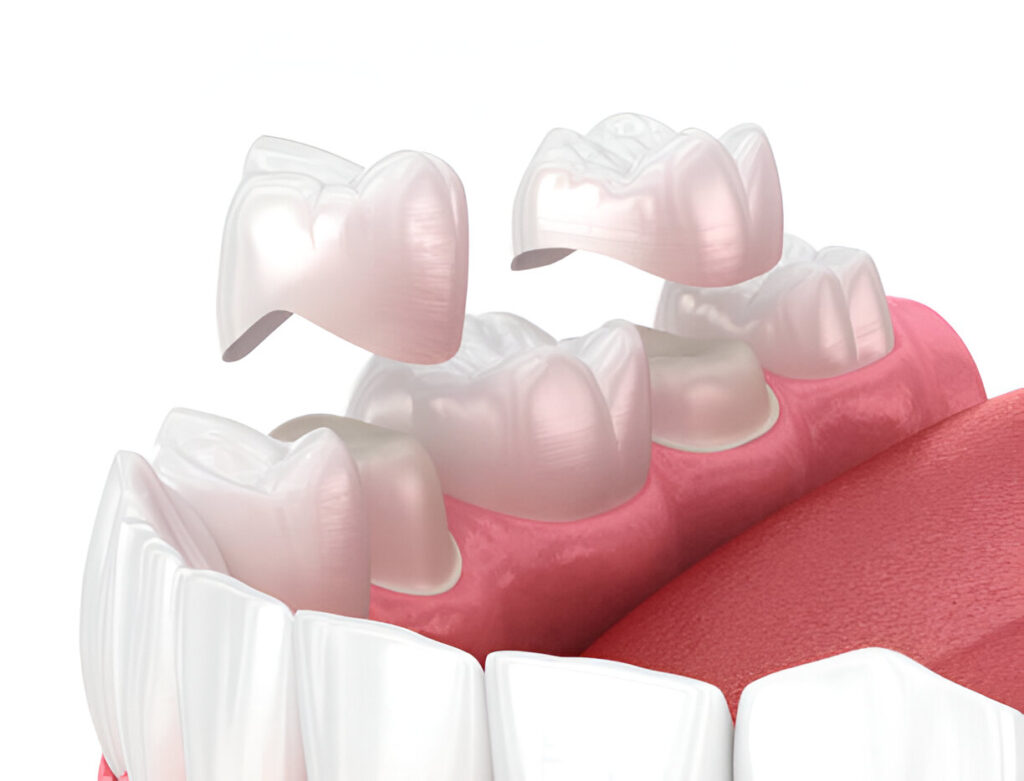Missing teeth can affect your confidence, speech, and ability to chew properly. Dental bridges offer a great solution to restore your smile. But can any dentist perform a bridge? Or do you need a specialist? In this article, we will explain who can perform a dental bridge, the qualifications needed, and when to see a specialist.
What Is a Dental Bridge?
A Dental bridge is a fixed replacement for one or more missing teeth. It consists of artificial teeth (pontics) that are supported by natural teeth or dental implants. The bridge fills the gap left by missing teeth, improving both function and appearance.
Types of Dental Bridges
There are different types of dental bridges, including:
- Traditional Bridge – Uses crowns on both sides of the gap to hold the artificial tooth in place.
- Cantilever Bridge – Supported by a crown on only one side of the gap.
- Maryland Bridge – Uses metal or ceramic wings attached to the back of nearby teeth instead of crowns.
- Implant-Supported Bridge – Fixed onto dental implants rather than natural teeth.
Each type requires different skills and expertise. Some can be done by a general dentist, while others need a specialist.
Can I Just Walk in to a Polyclinic?
Can Any Dentist Perform a Bridge?
Role of a General Dentist
A general dentist at a polyclinic in Dubai is trained in many dental procedures, including bridges. They can examine your teeth, take impressions, and place most traditional bridges.
However, some cases are more complex. If your teeth are weak, your gums are unhealthy, or you need an implant-supported bridge, your dentist may refer you to a specialist.
When Do You Need a Specialist?
In some situations, a specialist dentist is required. Here’s when you might need to see one:
- Complicated Cases – If you have multiple missing teeth, weak surrounding teeth, or a large gap, a specialist can provide the best solution.
- Gum Disease or Bone Loss – A periodontist treats gum and bone issues before placing a bridge.
- Implant-Supported Bridges – A prosthodontist or oral surgeon places implants before the bridge is attached.
- Bite or Jaw Issues – A misaligned bite may need correction before fitting a bridge.
Your general dentist will assess your case and let you know if a referral is necessary.
Can I Just Collect Medicine from a Polyclinic?
Qualifications and Training Needed for Bridges
General Dentists’ Training
All qualified dentists can place bridges as part of their general training. They learn about bridges in dental school and can perform simple cases.
However, complex procedures require extra training. Some dentists take additional courses to specialise in advanced bridge placements.
Specialists for Advanced Bridges
- Prosthodontists – Experts in replacing missing teeth and handling complex bridge cases.
- Periodontists – Specialists in gum and bone health, important for supporting bridges.
- Oral Surgeons – Handle implant procedures for implant-supported bridges.
A specialist may be needed if the case is difficult or requires advanced techniques.
What is the Best Time to Go to a Polyclinic?
How to Choose the Right Dentist for a Bridge
Choosing the right dentist ensures the success and longevity of your bridge. Here are some tips:
Check Experience and Qualifications
- Ask how many bridges the dentist has placed.
- Check if they have additional training in bridges or prosthetic dentistry.
Read Patient Reviews
- Look at reviews from past patients.
- Check before-and-after photos of similar cases.
Ask About Materials Used
- Some materials last longer than others.
- Discuss the options available and choose one that suits your needs.
Consider Technology and Techniques
- Some dentists use modern scanning and digital techniques for more precise results.
- Check if they offer the latest technology for bridge placement.
When Can I Book a Polyclinic Appointment?
The Importance of Expertise in Bridge Placement
The skill of the dentist affects how long the bridge lasts. A well-placed bridge can last 10-15 years or longer with proper care.
If a bridge is not fitted properly, you may face issues such as:
- Pain when chewing.
- Loose or unstable bridge.
- Gum irritation or infection.
An experienced dentist or specialist ensures a good fit and long-term success.
Conclusion
Not every dentist is qualified to place every type of bridge. A general dentist can perform most simple bridges, but for complex cases, weak teeth, or implant-supported bridges, a specialist may be required.
To ensure a successful outcome, always choose a skilled and experienced dentist who understands your needs. If you are unsure, ask for a consultation to discuss the best options for your smile.
Frequently Asked Questions
Can a General Dentist Do an Implant-Supported Bridge?
No, only a trained specialist can place dental implants. A general dentist can attach the bridge after the implant is placed.
Do I Need a Specialist for a Traditional Bridge?
Not always. A general dentist can place a traditional bridge in most cases unless there are complications.
What Happens If a Bridge Is Not Placed Correctly?
If a bridge does not fit well, it can cause bite problems, pain, or gum disease. Always choose a skilled dentist to avoid complications.
How Long Does It Take to Get a Bridge?
It usually takes two to three weeks, depending on the type of bridge. Some modern techniques allow same-day bridges.
Are Dental Bridges Painful?
No, the procedure is done under local anaesthetic to keep you comfortable. You may feel mild soreness afterward, which goes away in a few days.





